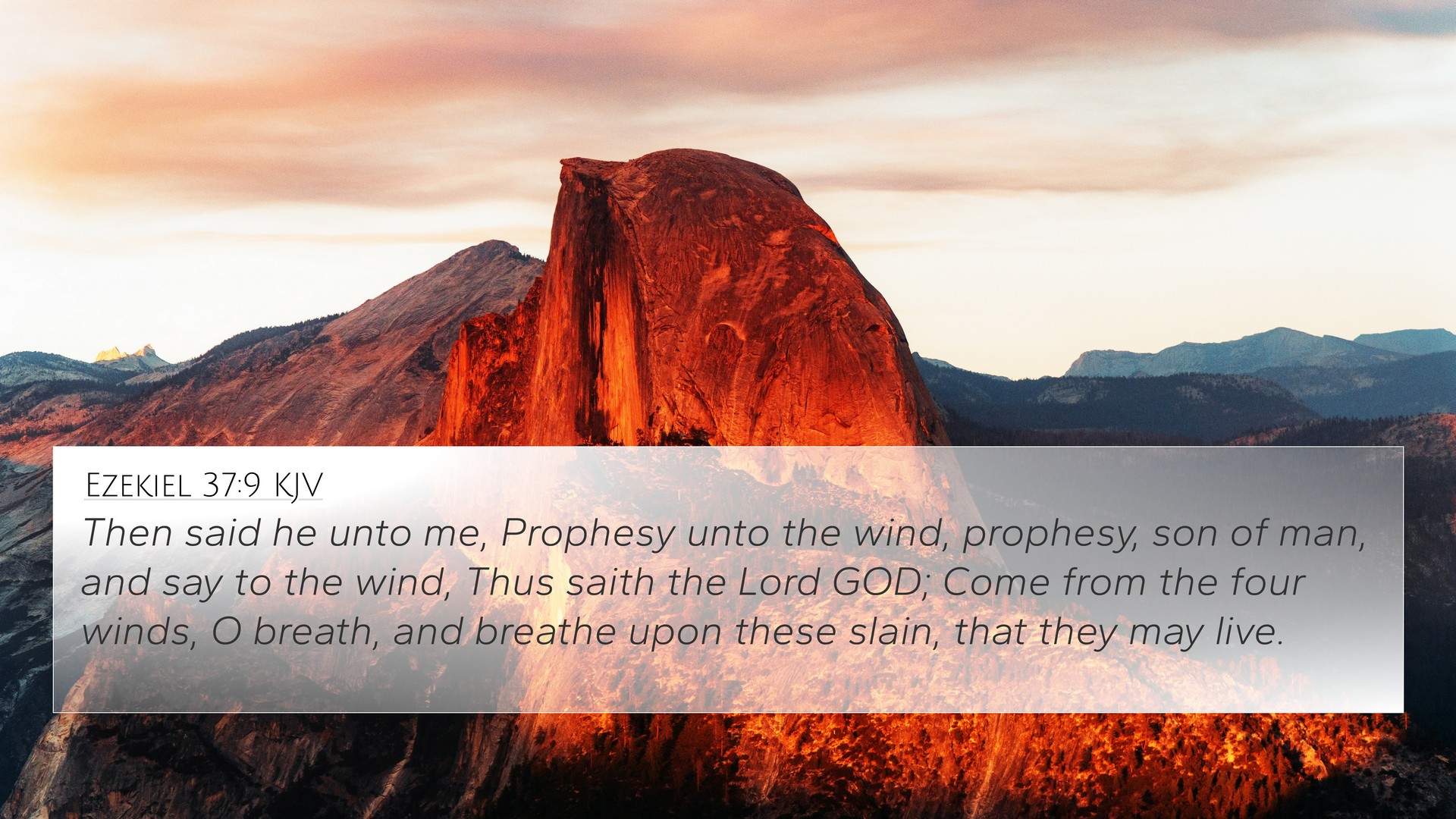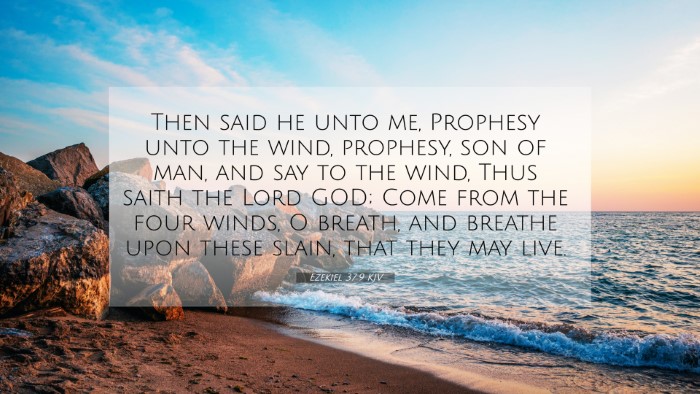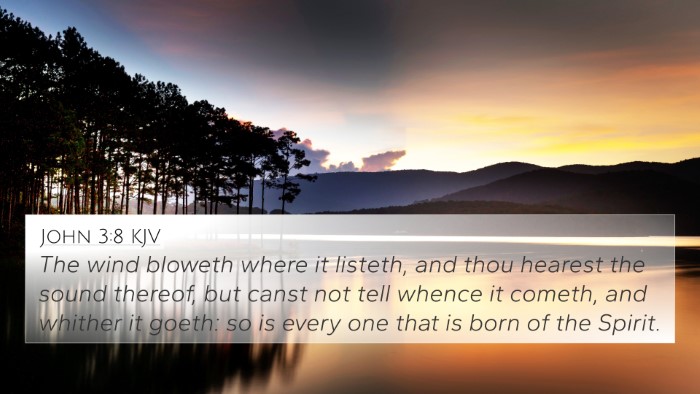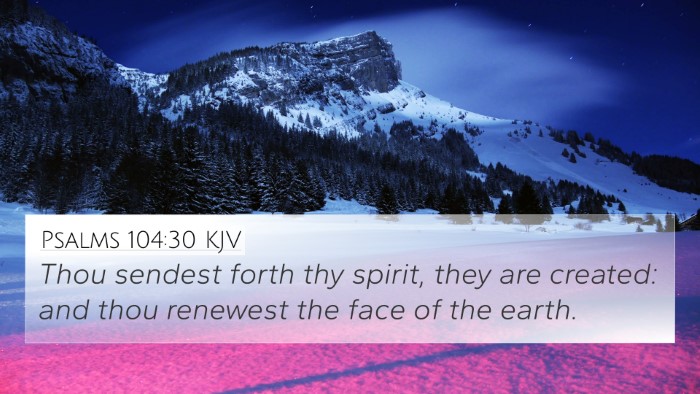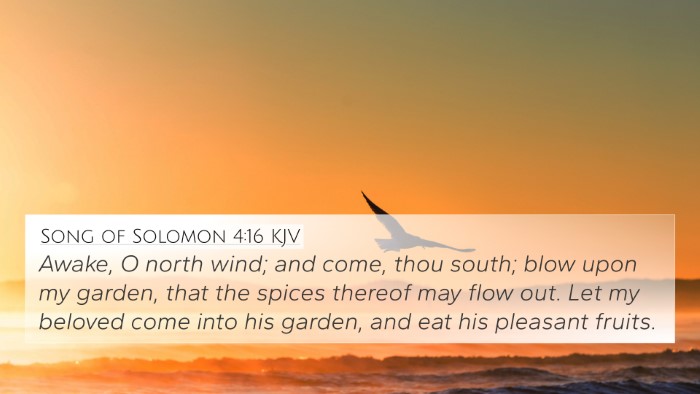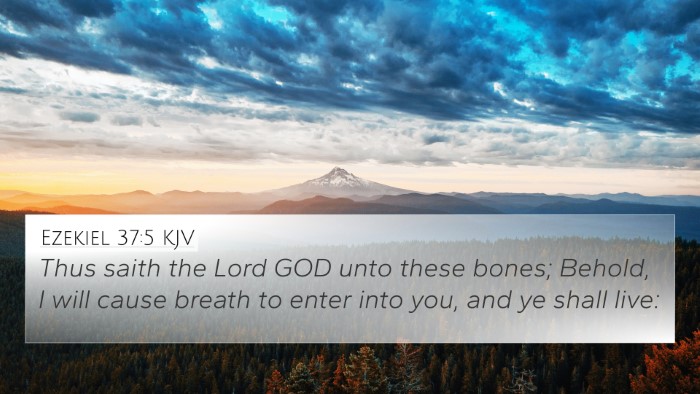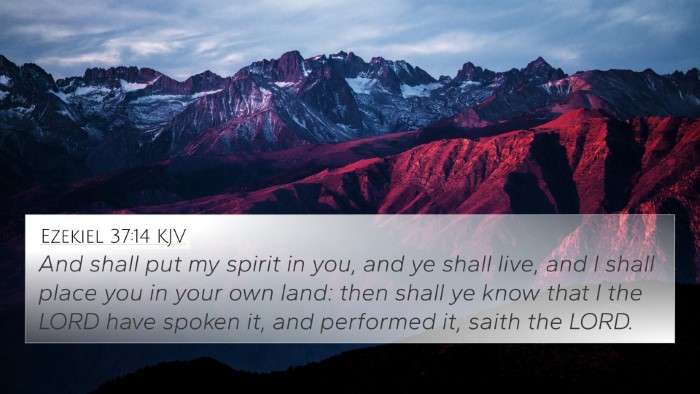Ezekiel 37:9 - Interpretation and Meaning
Verse Reference: Ezekiel 37:9
In Ezekiel 37:9, the prophet Ezekiel is commanded to prophesy to the wind, inviting the breath of God to breathe life into the dry bones of Israel. This verse is a pivotal part of the vision of the Valley of Dry Bones, symbolizing the restoration and revival of the nation of Israel. The imagery of bones and breath suggests themes of death, resurrection, and divine revitalization.
Contextual Analysis
This chapter addresses the state of the people of Israel in exile, emphasizing God's power to restore. The "dry bones" are a metaphor for the Israelites' spiritual desolation and hopelessness. The command to prophesy to the winds indicates that it is God's Spirit—the "breath of life"—that brings transformation. The surrounding context underscores an overarching message of hope amidst despair.
Public Domain Commentary Insights
Matthew Henry's Commentary
Matthew Henry notes that this vision illustrates God's promise to restore His people. He emphasizes that the prophesying signifies not only the revival of Israel but also the uniting of the scattered tribes. Henry points out the importance of the winds, representing the Spirit of God, that breathes life into what was once lifeless.
Albert Barnes' Notes
Albert Barnes elaborates on the prophetic act of calling the wind, highlighting the divine authority behind the prophet's words. He explains how this action reflects the revival of Israel as a nation and points towards the hope for spiritual renewal that transcends mere physical restoration. Barnes draws connections to the New Testament, linking this revival theme to the work of the Holy Spirit.
Adam Clarke's Commentary
Adam Clarke provides insight into the physical and spiritual dimension of the resurrection of the bones. He describes how the restoration foretold in Ezekiel foreshadows the future revitalization of Israel at the end of days. Clarke emphasizes the significance of obedience to God's word as a precursor to experiencing His miraculous power.
Thematic Connections
The verse establishes numerous themes that resonate throughout the Bible:
- Divine Restoration: God's active role in restoring His people.
- Hope and Renewal: The promise of new life and hope in God’s plan.
- Role of the Spirit: The importance of the Holy Spirit in revitalizing the faithful.
Cross References
To enhance understanding of Ezekiel 37:9, consider these interrelated verses:
- Genesis 2:7: God breathes life into man, demonstrating the power of His breath.
- Isaiah 61:1: The Spirit of the Lord brings good news and healing.
- Joel 2:28-29: The outpouring of God's Spirit on all people.
- John 3:8: The Spirit's mysterious movement like the wind.
- Romans 8:11: The resurrection power of the Spirit in believers.
- Revelation 11:11: The breath of life from God enters the slain witnesses.
- Ephesians 2:1: Spiritual deadness and the revival through Christ.
- John 6:63: The Spirit gives life; the flesh profits nothing.
- Acts 2:4: The arrival of the Holy Spirit at Pentecost signifies new life.
- 1 Corinthians 15:45: Christ as the life-giving Spirit.
Conclusion
Ezekiel 37:9 serves as a compelling reminder of God's power to breathe life into desolation. Through the collaborative insights of various commentaries and cross-referencing biblical texts, we observe a rich tapestry of hope woven throughout scripture, calling us to recognize and embrace the transformative power of God's Spirit in our lives. This verse, along with its connections through the wider narrative of the Bible, invites deeper reflection and inspires faith in the ongoing work of restoration God promises to His people.
Resource Guide for Cross-Referencing
For those interested in diving deeper into cross-referencing biblical texts, consider utilizing the following tools:
- Bible Concordance: An essential resource for locating verses based on keywords.
- Bible Cross-Reference Guide: Assists in identifying themes across various scriptures.
- Comprehensive Bible Cross-Reference Materials: A compilation of themes and connections across the Bible.
- Bible Chain References: A method to trace themes throughout different books.
